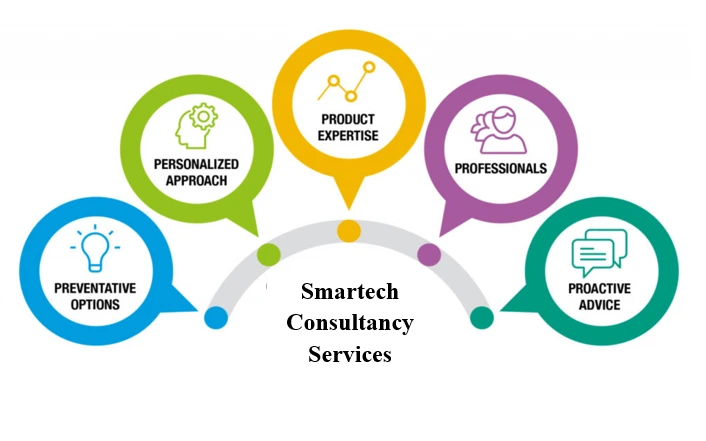
Imagine this: you’ve just aced a project, brimming with ideas to share at your team meeting. But as you open your mouth, words get tangled, and your brilliant plan gets lost in a jumble of “um’s” and “ah’s.” Effective communication in the workplace isn’t just about fancy vocabulary; it’s about clearly conveying your message and fostering strong relationships with colleagues. Feeling a little tongue-tied? Worry not, fellow traveler! This guide equips you with essential communication strategies to navigate the workplace with confidence, ensuring your voice is heard and your ideas shine.
The Bedrock of Success: Why Communication Matters in the Workplace
Effective communication is the bedrock of any successful workplace. Think of it as the bridge that connects you to your colleagues, clients, and superiors. Strong communication fosters collaboration, avoids misunderstandings, and ensures everyone is on the same page.
Here’s a metaphor to consider: Imagine a team building a house. Without clear communication (who’s doing what, where are the materials?), the project descends into chaos. Effective communication is like a well-drafted blueprint, ensuring everyone understands their role and works together seamlessly to achieve the desired outcome.
By honing your communication skills, you can:
- Boost Collaboration: Clear communication fosters teamwork and collaboration, leading to more creative solutions and efficient project completion.
- Minimize Misunderstandings: Miscommunication can be costly and time-consuming. Effective communication ensures everyone is on the same page, reducing errors and misunderstandings.
- Build Trust and Respect: When you communicate clearly and openly, you build trust and respect with your colleagues, creating a more positive and productive work environment.
- Enhance Your Career Prospects: Strong communication skills are highly sought after by employers. Mastering this skill can set you apart from the competition and propel your career forward.
Remember: Effective communication is a two-way street. It’s about sending clear messages and actively listening to understand others.
The Art of Expression: Crafting Clear and Concise Messages
Crafting clear and concise messages is paramount in workplace communication. Here are some tips to sharpen your message delivery:
- Know Your Audience: Tailor your communication style to your audience. Use simpler language for a wider audience and more technical terms when addressing specialists.
- Organize Your Thoughts: Before diving in, have a clear idea of what you want to say. Structure your message with a beginning, middle, and end, ensuring a logical flow of information.
- Focus on Clarity: Use concise language and avoid jargon. Explain complex concepts in a way that is easy for everyone to understand.
- Examples are Powerful: Use real-life examples, anecdotes, or data to illustrate your points and make them more relatable.
- Proofread Before Sending: Typos and grammatical errors can undermine your credibility. Proofread your emails and messages carefully before hitting send.
Remember: Clarity is king. The easier it is for others to understand your message, the more effective your communication will be.
The Power of Listening: Becoming an Active Listener
Communication isn’t just about talking; it’s also about listening attentively. Here’s how to become an active listener:
- Pay Attention: Give the speaker your full attention. Put away distractions (phones!), maintain eye contact, and show genuine interest in what they’re saying.
- Ask Clarifying Questions: Don’t be afraid to ask questions to ensure you understand the message completely. This demonstrates your attentiveness and encourages further dialogue.
- Summarize and Paraphrase: Summarize key points in your own words to show you’ve been listening and to confirm your understanding.
- Avoid Interrupting: Let the speaker finish their thought before responding. Interrupting shows disrespect and can hinder the flow of conversation.
- Nonverbal Cues Matter: Maintain good posture, nod occasionally, and use positive facial expressions to show you’re engaged in the conversation.
Remember: Active listening is a skill that takes practice. By focusing on truly understanding the other person’s message, you build trust and foster stronger working relationships.

Beyond Words: Mastering Nonverbal Communication
Effective communication goes beyond spoken words. Nonverbal cues like body language, facial expressions, and tone of voice play a significant role in conveying your message. Here’s how to harness the power of nonverbal communication:
- Maintain Eye Contact: Eye contact shows confidence, attentiveness, and honesty. However, avoid excessive staring, which can come across as intimidating.
- Positive Body Language: Maintain good posture, avoid fidgeting, and use open gestures. Positive body language projects confidence and openness to communication.
- Mind Your Tone: The tone of your voice is just as important as the words you say. Use a professional and courteous tone, even when delivering difficult messages.
- Facial Expressions: A smile conveys friendliness and approachability, while a frown can indicate disapproval or frustration. Be mindful of your facial expressions and ensure they align with your message.
- Be Aware of Cultural Differences: Nonverbal cues can vary across cultures. Be mindful of cultural differences to avoid misunderstandings.
Remember: Nonverbal communication is a powerful tool. By using it effectively, you can strengthen your message and create a more positive impact on your colleagues.
Navigating Difficult Conversations: Keeping Your Cool Under Pressure
The workplace isn’t always sunshine and rainbows. There will be times when you need to have difficult conversations. Here are some tips to navigate these situations with grace:
- Preparation is Key: Before the conversation, plan what you want to say and how you want to say it. Anticipate the other person’s concerns and prepare your responses.
- Choose the Right Setting: Have the conversation in a private space where you can speak freely without interruptions.
- Focus on the Issue, Not the Person: Attack the problem, not the person. Focus on specific behaviors and their impact, rather than personal attacks.
- Use “I” Statements: “I” statements help you express your feelings without placing blame on the other person. For example, “I feel frustrated when…” is more constructive than “You always…”
- Stay Calm and Professional: Even if the conversation gets heated, maintain a calm and professional demeanor. Avoid raising your voice or using inflammatory language.
Remember: Difficult conversations can be stressful, but by approaching them with preparation, respect, and a focus on solutions, you can navigate them effectively.
Read Also
- Top 5 Productivity Apps for Mobile in 2024
- Essential marketing strategies for small businesses in 2024
- How to land your dream job: Essential resume and interview tips
- Mastering the art of negotiation: Getting what you deserve
Conclusion: Communication Crossroads – Mastering the Journey
Effective communication in the workplace isn’t a destination; it’s a journey of continuous learning and improvement. By honing your message delivery, becoming an active listener, harnessing the power of nonverbal communication, and navigating difficult conversations with grace, you’ll transform yourself from a hesitant communicator into a confident and influential voice in the workplace. Remember, clear communication is the key to building trust, fostering collaboration, and achieving success in your professional endeavors. So, take a deep breath, embrace the journey, and watch your voice become a powerful tool for navigating the workplace with confidence!
Frequently Asked Questions (FAQs) on Effective Workplace Communication
FAQ 1: How can I overcome my fear of public speaking?
Public speaking anxiety is common. Practice your presentation beforehand, visualize success, and focus on delivering your message clearly and concisely. Consider joining a public speaking group for additional support.
FAQ 2: What if I have a coworker with a difficult communication style?
Try to understand their communication style and adjust yours accordingly. Focus on clear and concise communication from your end. If issues persist, consider involving a neutral third party to mediate the situation.
FAQ 3: Are there online resources to improve my communication skills?
Absolutely! There are numerous online resources available, including articles, videos, and even online courses on effective communication. Invest some time in learning and practicing these valuable skills.
FAQ 4: How can I improve my written communication skills?
Proofread your emails and documents carefully. Strive for clarity, conciseness, and proper grammar. Consider online writing courses or resources to hone your writing skills.
FAQ 5: What are some tips for effective communication in virtual meetings?
Ensure a quiet and well-lit environment. Minimize distractions by muting your microphone when not speaking. Use video conferencing whenever possible to enhance nonverbal communication.
By embracing these communication tips and continuously developing your skills, you’ll be well-equipped to navigate the complexities of workplace communication and ensure your voice is heard. Remember, effective communication is a powerful tool that can empower you to achieve your goals and build a successful career.

